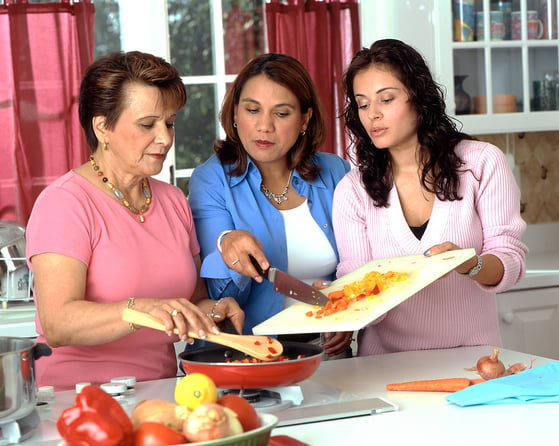
Social worker Dorothy Miller created the term “sandwich generation” back in 1981, referring to younger women in their 30s-40s who were taking care of both their children and parents.
Journalist Carol Abaya continued to study the term as the population of older adults continued to grow in the United States due to the Baby Boomers and increased life expectancy. From 1900-2000, life expectancy increased from 47 to 76 years, according to the Bureau of Labor Statistics.
Since we are living longer, the 21st century has produced a large population of older adults, creating a need for more caregivers.
The Sandwich Generation
Abaya broke down the sandwich generation even further:
Traditional: Those sandwiched between aging parents who need care and/or help and their own children.
Club Sandwich: Those in their 50s-60s sandwiched between aging parents, adult children and grandchildren, or those in their 30s-40s, with young children, aging parents and grandparents.
Open Faced: Anyone else involved in elder care.
While sandwich generation may sound like a quirky term, it has become recognized in mainstream culture. In fact, Merriam-Webster and Oxford English officially added the term to their dictionaries in 2006.
With so many providing care for others, who is caring for the sandwich generation?
In many cases, no one. It’s not uncommon for a caregiver to neglect oneself while caring for others and likely working a full-time job, too.
As a caregiver, it is important to integrate simple self-care tips into your daily routine so you stay healthy. The healthier you are, the higher level of physical and emotional care you can provide your loved ones.
Daily Self-Care Tips for the Caregiver:
- Be kind to yourself. Don’t set your expectations for yourself too high; ask for help. Make a list of people who can help, whether it’s with caregiving or other tasks. Every task removed from your full plate will give you a few more minutes of time for you.
- Take breaks for you. Don’t give up your hobbies. Continue to get exercise, have coffee with friends, enjoy an evening out with your spouse. Caring for yourself means taking time for the things you love.
- Nourish your body with healthy food. It’s easy to turn to unhealthy food when you are stressed, tired or frustrated. Eating healthy food will give you the physical and mental stamina to deal with whatever is thrown your way that day.
- Get enough sleep. Sleep, like healthy food, helps keep your body and mind sharp and can also help you handle adversity better. Remember, if you do not take care of yourself, you can’t do a good job of caring for those you love.

